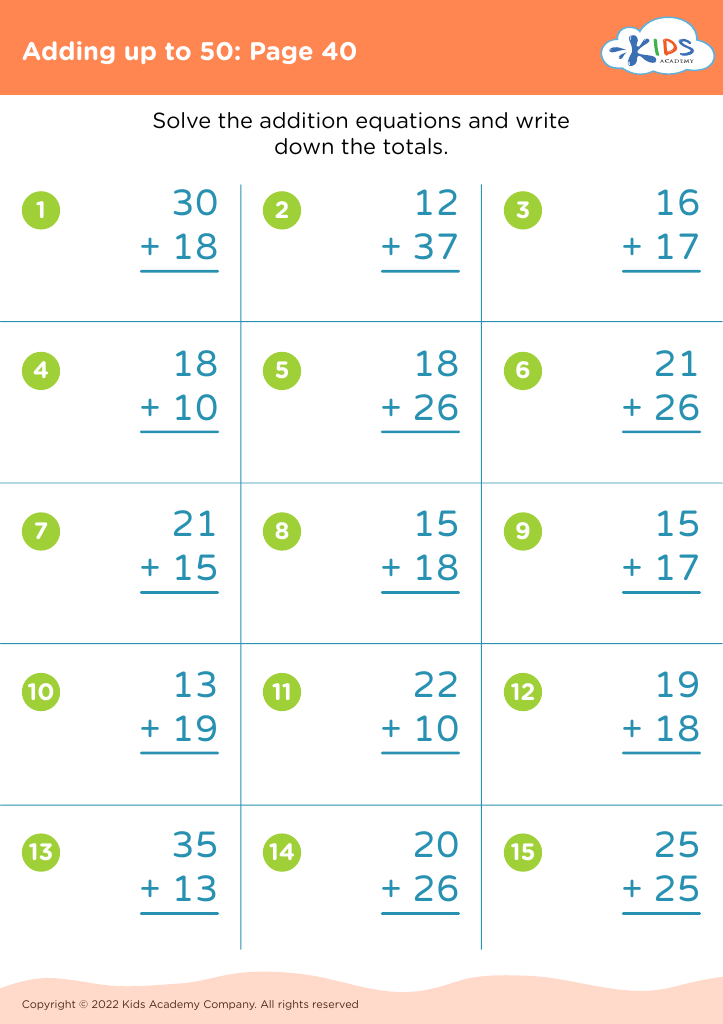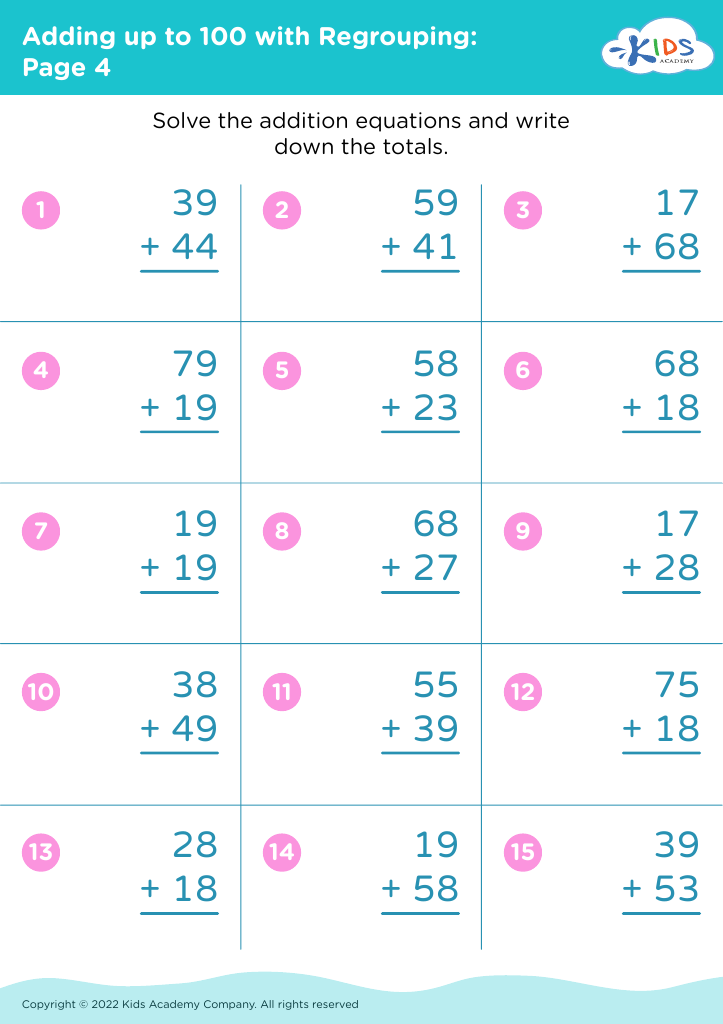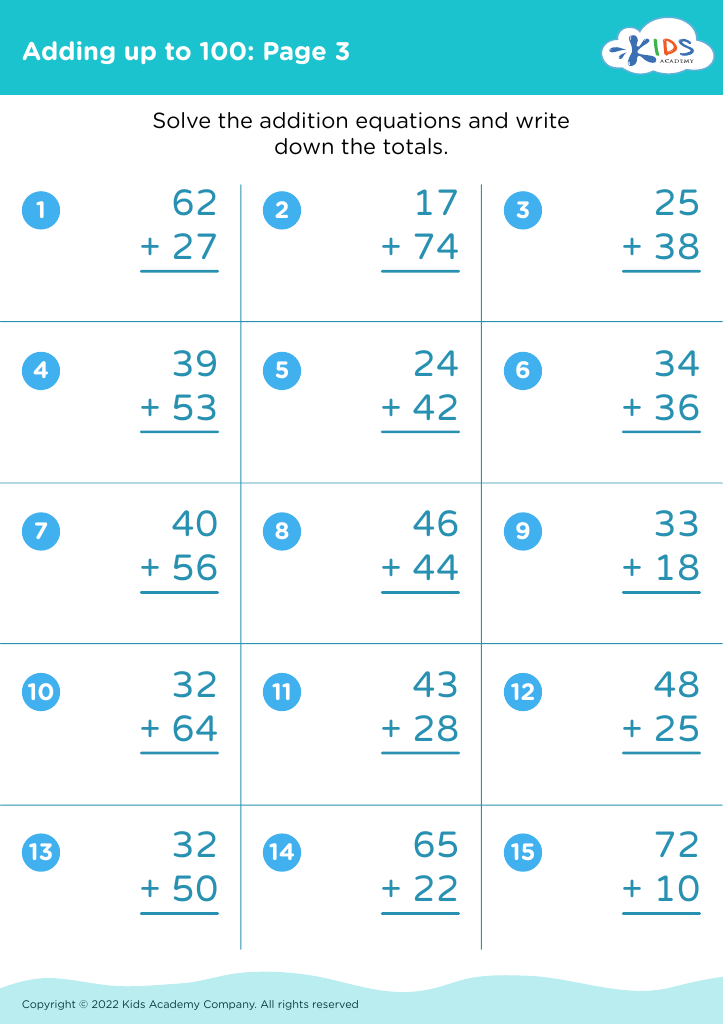Spelling practice Addition Worksheets for Ages 3-7
4 filtered results
-
From - To
Introducing our Spelling Practice Addition Worksheets for ages 3-7! These engaging and educational worksheets combine spelling practice with basic addition to make learning fun and effective. Designed specifically for young learners, our age-appropriate activities enhance essential skills such as literacy, numeracy, and cognitive development. Each worksheet is crafted to challenge young minds while keeping them entertained. Perfect for home or classroom use, these exercises help children build a strong foundation in math and spelling simultaneously. Download now and watch your child's confidence and abilities grow with every practice session! Start easing the journey of learning today with our fun-filled resources.
Spelling practice and addition skills form the foundation of early childhood education for children aged 3-7. First, spelling develops essential language abilities such as reading and writing. When children practice spelling, they enhance their phonemic awareness, which is crucial for decoding words and understanding sound-letter relationships. This early mastery fosters strong reading habits that support lifelong literacy and academic success.
Similarly, basic addition skills are vital for early math education. Engaging children in addition exercises helps them grasp fundamental concepts of numeracy and arithmetic. These skills are necessary for more advanced mathematical reasoning, problem-solving, and everyday activities, such as counting and measuring.
For parents and teachers, investing in spelling and addition practice nurtures a child's cognitive development, promoting critical thinking and analytical skills. It also boosts confidence as children start mastering basic academic tasks. By integrating playful and interactive methods, such as educational games and hands-on activities, adults can make learning enjoyable and effective.
Moreover, early exposure to these core subjects sets a positive educational trajectory. Children who feel competent in spelling and arithmetic are more likely to develop a love for learning, adapt better to school environments, and perform well academically. Therefore, dedicating time to spelling and addition practice is an investment in a child's overall growth and future success.





















